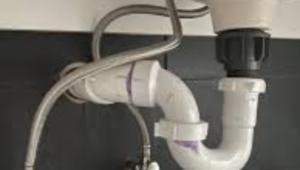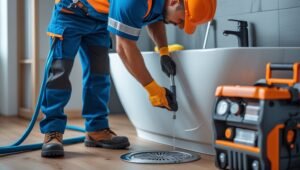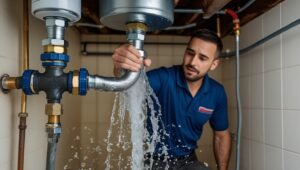If you’re interested in becoming a plumber, follow these six essential steps to start your career. Plumbing is a rewarding profession that offers job security, good pay, and opportunities for advancement.
1. Complete Your Secondary Education
A strong foundation in subjects like science, technology, math, and computers is essential for plumbing. If you’re in secondary school, work towards your certifications, such as GCSEs. Some schools may also offer vocational courses, which can provide hands-on experience and improve your understanding of plumbing basics.
2. Attend Vocational Plumbing Training
Though a university degree isn’t required, completing a vocational training program is highly recommended. Enroll in a certified trade school or technical institute that offers specialized plumbing courses. Here, you’ll learn about drainage systems, piping equipment, and water management.
3. Participate in a Plumbing Apprenticeship
After completing your vocational training, you can start a plumbing apprenticeship. This hands-on experience combines classroom learning with on-the-job training. Apprenticeships typically cover plumbing codes, systems, and specialized skills, and they are an essential step towards becoming a fully qualified plumber.
4. Fast-Track Plumbing Courses
For those who want to become plumbers quickly, fast-track courses are available. These courses typically last 8 to 10 weeks and teach general plumbing techniques and practices. This option allows you to enter the workforce sooner, though you may still need additional experience.
5. Work as a Plumber’s Assistant
After completing a course or apprenticeship, you can work as a plumber’s assistant. This role allows you to gain real-world experience while earning a wage. You’ll work alongside experienced plumbers, learning advanced skills and gaining independence in the field.
6. Gain Professional Experience
Once you’ve completed your training and gained some experience, you can continue working as a professional plumber. As you grow in your career, you may take additional courses to enhance your skills. Over time, you can advance to the role of a master plumber, offering more job opportunities and higher pay.

What Does a Plumber Do?
Plumbers install, repair, and maintain plumbing systems for homes and businesses. Their tasks include fixing pipes, installing heating systems, and maintaining sanitation units. They may also provide estimates, read blueprints, troubleshoot problems, and ensure compliance with local plumbing codes.
Tips for Becoming a Successful Plumber
- Make Industry Connections: Networking can help you find apprenticeships or jobs.
- Stay Updated on Codes: Plumbers must know the latest safety and regulatory codes.
- Prioritize Safety: Always follow safety regulations to protect yourself and others.
- Maintain Physical Fitness: Plumbing is a physically demanding job, so stay in good shape.
Frequently Asked Questions (FAQs)
Q: How long does it take to become a plumber?
A: It typically takes around 2 to 4 years, including vocational training and an apprenticeship.
Q: Do plumbers need a license?
A: In most areas, plumbers need a license to work legally. Requirements vary by region.
Q: Can I become a plumber without an apprenticeship?
A: While it’s possible to take fast-track courses, an apprenticeship offers invaluable hands-on experience.
Q: How much do plumbers earn?
A: The average salary for a plumber in the UK is around £28,782 per year, with higher earnings for more experienced plumbers.
Q: What skills are needed to be a plumber?
A: Plumbers need skills in troubleshooting, problem-solving, working with tools, and understanding blueprints.







One Response